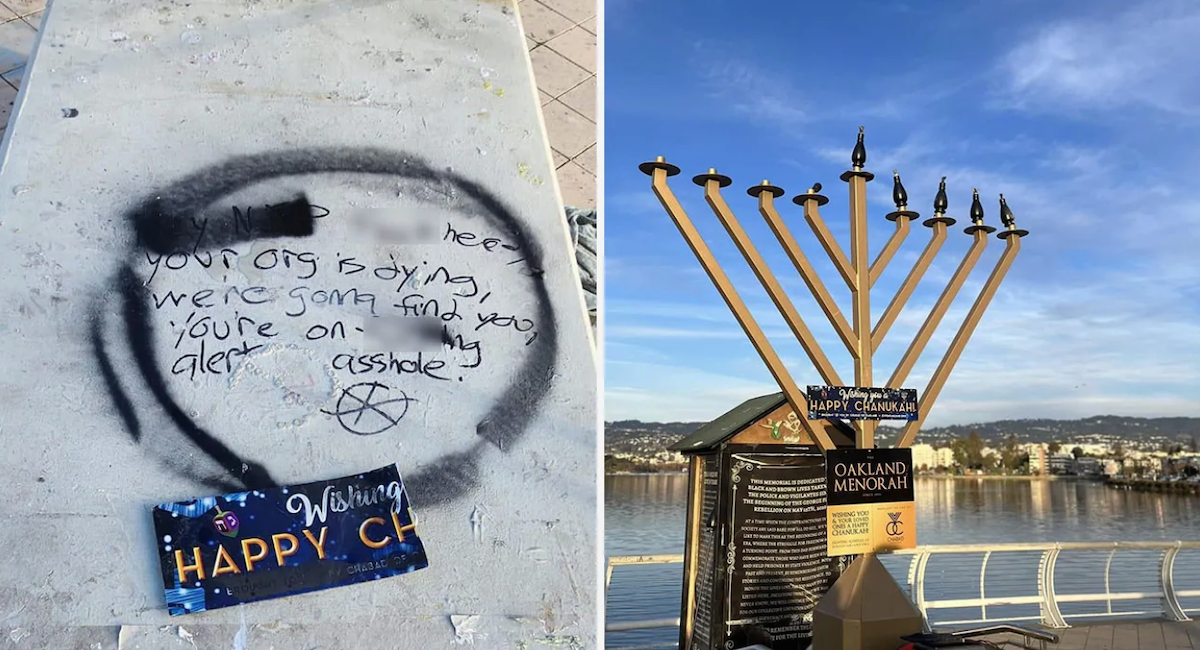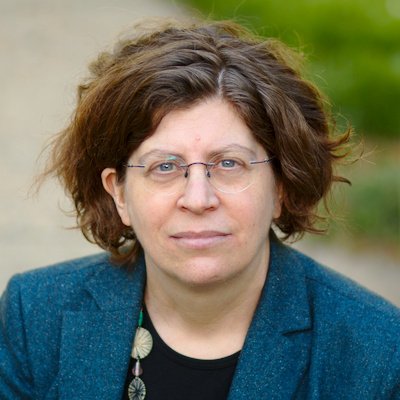Hamas’ October 7 attack on Israel opened deep wounds in the collective Jewish psyche, raising once again the specter of the Holocaust and anti-Jewish pogroms. Israel’s subsequent response – with more than 17,000 Palestinians killed and much of Gaza now in ruins – is fueling divisions globally and in the US, even among erstwhile political allies. Jo Ellen Green Kaiser, CEO of J Jewish News of Northern California, says rising antisemitism among those on the left here is “new and shocking” and leaving many Jews in America feeling shaken and abandoned. (This interview has been edited for length and clarity.)
Did October 7 change what it means to be a Jewish American media outlet?
What we’ve heard from our people is that they feel we’re more important than ever for the exact work that we do, which is telling the community about itself, connecting the community, informing the community. In fact, we’ve had a number of people tell us they really appreciate our reporting on antisemitic incidents, but they also really appreciate our reporting just on positive community events, like our story on a couple of teens who did a swim to Alcatraz for disability rights. They are looking for joy and a positive reason to be Jewish and to not be defined by things like October 7. So, for us as a local Jewish news organization, October 7 actually strengthened us. But it didn’t change us.
What else are you hearing from your readers? What are they saying about the conflict and the subsequent rise in antisemitism here?
The most pain I have heard recently in our community is from Jews on the left, who find themselves without allies. Jews on the left say, we marched with Black Lives Matter, we marched with the Women’s Movement, with the trans and LGBT movement, with immigrants. And now, even the Jews calling for a cease-fire are asking, where are those saying Hamas started this, that our people were massacred, that Jewish lives were lost. That’s been really hard. What we’ve seen instead is a rise of antisemitism on the left. Not anti-Zionism, not anti-Israel. What we are seeing is people who say, “kill all the Jews.” We are seeing graffiti like that. When you see that… it becomes impossible. And I’ve been talking to a lot of progressive Jews, rabbis, people who have stood with Palestinians, who are saying, we are all alone because the people we thought were comrades have become antisemitic.
What do you think those on the left who are espousing antisemitic views get wrong about the Jewish community?
What we’ve learned is that people who are antisemitic tend to be “all-purpose” haters. They tend to be anti-immigrant; they tend to be anti-Black. Especially on the Right. On the Left it’s a bit different. They are trying to drive a wedge between Jews and people of color. I don’t know if people understand this, but 25% of Jews in the Bay Area are either persons of color or related to people of color. Jews come from all different backgrounds, races, ethnicities. Jews in the Middle East are Arabic, Persian. We work with a group called Jimena which represents Jews from the Middle East. We work with Jewtina, which represents Jews from Latin America. There is a Chinese Jewish rabbi in the East Bay. Jews have very intersectional identities. And these Jews, whether Black, Asian or Brown, who are already subject to racism, now also have to choose whether or not to subject themselves to antisemitism when deciding to show their Jewish identity or not.
Speaking of showing your Jewish identity, I read that some Jews decided not to display their menorahs during Hannukah out of fear. Have you heard that?
Absolutely. Some Jews are not wearing their stars of David, others are not displaying their menorahs. Parents of children are especially upset. I have heard stories of kids being called horrific names. I talked to one woman whose kid was called a kike. We haven’t heard that word in a long time. Parents are feeling very scared about their kids, worried about their kids showing up as Jewish. It’s very scary for people. I assume it’s similar to what is happening in the Muslim community, with women debating whether to wear the hijab, for example. It’s like these outward signs of difference are very problematic right now.
What’s been J’s approach to reporting on antisemitic incidents?
What we’ve found is that we’re often the first news outlet to report on an antisemitic incident. Like, when Smitten Ice Cream in San Francisco’s Mission neighborhood had its windows broken and antisemitic graffiti sprayed over the façade, we were the first to report it. Our reporting got picked up in the New York Times. But to be honest, there are just too many antisemitic incidents to cover. It’s overwhelming. We’re literally hearing of 5 to 10 incidents a day. I mean, we don’t even cover all of them. We have to pick and choose which ones we think are particularly egregious or tell us something about the perpetrator or the community’s response.
How do you think all this is affecting people in the community on an individual level?
The Jewish community built itself around the Holocaust, around pogroms in Europe and the Middle East. So, the October 7 massacre just raised this history in front of Jewish eyes in a way that almost blinded us to everything else. It was almost incomprehensible. I think about my parents’ stories, my grandparents’ stories, of people hiding away, afraid to be in their own homes, someone stalking you. When I grew up, I was inundated with stories of the Holocaust, and I would have nightmares of people coming to get me out of bed, even though I grew up in America. And I fought most of my life to not define myself in that way. And this brings it all back again.
Finally, is there a story or stories J has put out recently that you’d like to highlight?
We just published something by an Israeli who lives in the Bay Area, Guy Miasnik, and a friend of his, both of whom went back to Israel to see the results of the massacre. There is something like 50-60,000 Israeli Jews in the Bay Area, and they have their own take on this whole conflict. They have been very traumatized, and they are part of our community. We also just ran a piece by a high school student who is feeling the brunt of antisemitism and wants there to be more history taught in school about the Holocaust and the history of antisemitism. These are the voices we are hearing from the community that I hope other people will pay attention to.
This resource is supported in whole or in part by funding provided by the State of California, administered by the California State Library in partnership with the California Department of Social Services and the California Commission on Asian and Pacific Islander American Affairs as part of the Stop the Hate program. To report a hate incident or hate crime and get support, go to CA vs Hate






